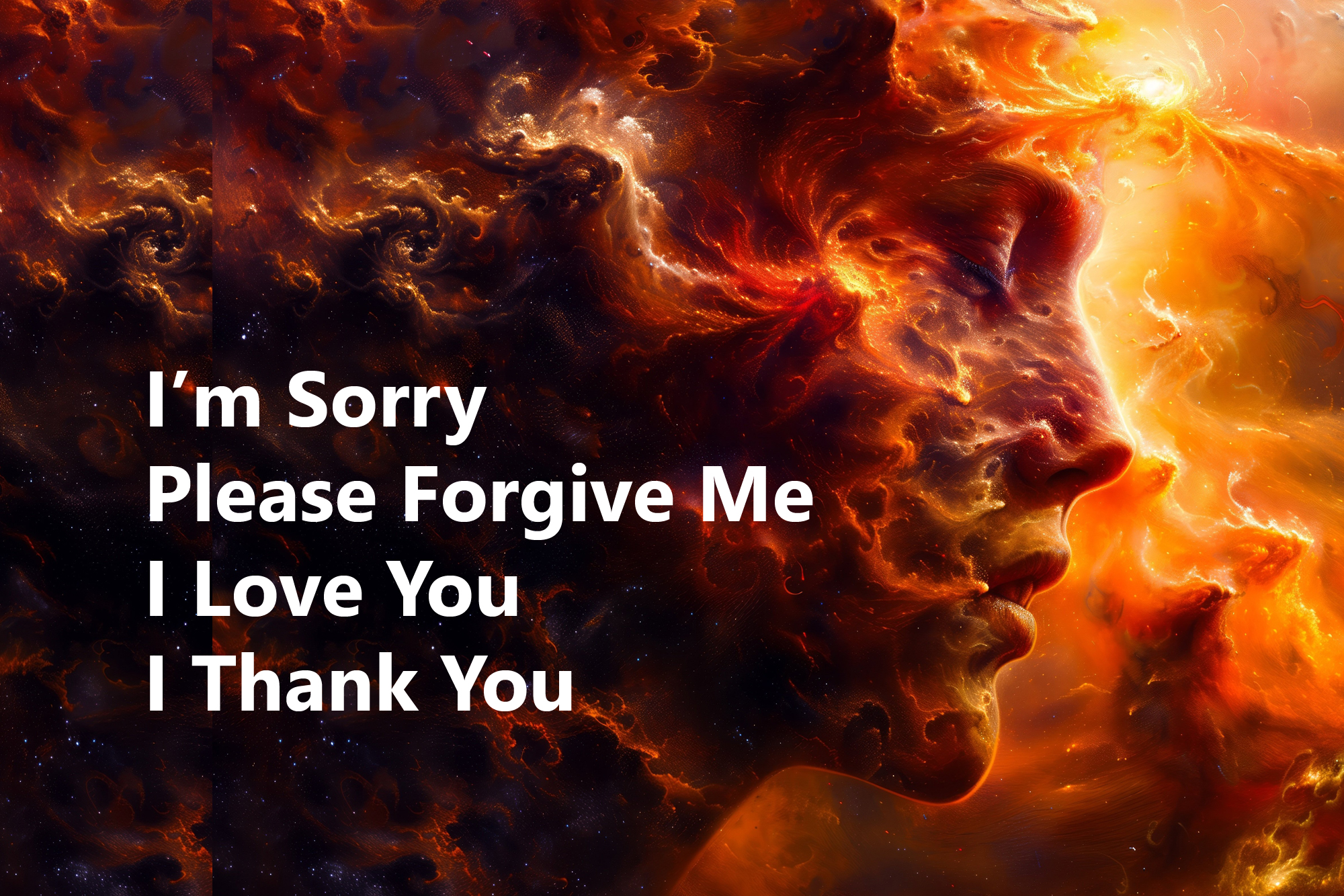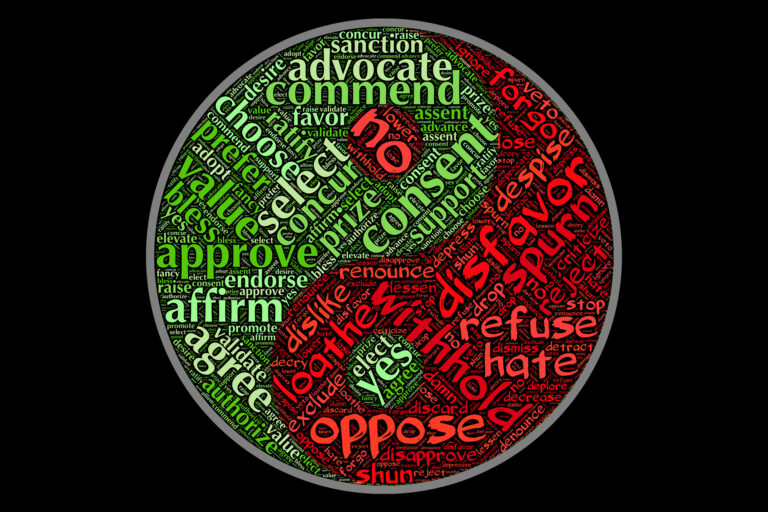Ho'oponopono: Empowering Us, Transforming Our Reality.

I’ve known about Ho’oponopono for many years, thanks to a friend who introduced me to it. While she explained the concept, she didn’t quite clarify why we should take responsibility for others’ actions. Back then, I was unaware of the idea that we create our own reality. The notion of being accountable for other people’s actions, as she described it, didn’t align with my understanding, so I dismissed it and never followed through.
Before I share my insights on this powerful healing practice, let’s first explore the origins of Ho’oponopono.
Ho’oponopono is an ancient Hawaiian practice for healing, reconciliation, and forgiveness. It’s based on the belief that we can clear and resolve conflicts, negativity, and blockages through a process of taking responsibility, expressing love, forgiveness, and gratitude. Here’s a detailed overview of Ho’oponopono:
Traditional Ho’oponopono
Origins: Ho’oponopono is deeply rooted in the traditional Hawaiian culture. It was originally practiced by native Hawaiians to maintain harmony within families and communities.
Meaning: The word “Ho’oponopono” roughly translates to “to make right” or “to correct” something. It focuses on restoring balance and right relationships among individuals.
Traditional Process: The original practice involved family gatherings led by a respected elder or kahuna (spiritual healer). The purpose was to address and resolve disputes, release grievances, and restore harmony.
The session would involve prayer, discussion, confession, repentance, mutual forgiveness, and finally, a ceremonial meal to celebrate the restoration of peace.
Role of the Kahuna: The kahuna played a central role as a facilitator and spiritual guide, helping the participants to open up, express their emotions, and reach forgiveness.
Modern Ho’oponopono by Morrnah Simeona
Evolution: In the 1970s, Morrnah Nalamaku Simeona, a native Hawaiian healer, modernized Ho’oponopono to suit contemporary life. She developed a version that could be practiced individually rather than as a group ritual.
Philosophy: Simeona’s version emphasizes the idea that all problems originate from memories replaying in the subconscious. By healing ourselves, we can influence and heal others and the world.
Process: Her practice involves taking full responsibility for everything that happens in our lives. This includes cleansing negative memories, beliefs, and emotions from the subconscious mind.
3. The Four Key Phrases and their principles
The simplified, modern version of Ho’oponopono focuses on repeating four phrases, each carrying deep spiritual significance:
I’m sorry: This implies taking responsibility for the emotions we feel in any situation or relationship.
The idea is that the emotions we experience are linked to some “data” or memories we’ve gathered across all our lifetimes. We acknowledge that if we’re experiencing this emotion, we’re, in some way, responsible for having created it.
Please forgive me: This is a request for forgiveness from the Divine for any harm we may have caused, knowingly or unknowingly.
Thank you: Expressing gratitude to the Divine for the opportunity to resolve and heal the situation or emotion.
I love you: Affirming unconditional love for the Divine, trusting that the Divine or higher consciousness will guide the healing process.
The practice involves mentally directing these phrases to oneself or any situation needing healing. The repetition is believed to clear memories, energies, and negative patterns, leading to healing and restoration.
Dr. Ihaleakala Hew Len’s Contributions
Dr. Ihaleakala Hew Len, a student of Morrnah Simeona, further popularized Ho’oponopono. He claimed to have cured an entire ward of mentally ill criminals in Hawaii without directly interacting with them. Instead, he used Ho’oponopono by continuously repeating the four key phrases while reviewing their files, believing he was healing himself and thereby healing them.
Criticism
Critics point out that the idea of taking full responsibility for everything might be misunderstood or oversimplified, potentially leading to guilt. However, proponents argue that the responsibility concept is meant to be empowering, highlighting our capacity to influence our reality through inner healing.
How I understand this is that we are taking responsibility for our own emotions. The concept that we create our reality aligns closely with this perspective.
It’s commonly said that our external world is a reflection of our internal state. This can be unsettling when we encounter negativity and toxicity around us. It raises the difficult question: Is this a reflection of our inner world? And if so, what can we do to change it?
Apparently, the best we can do regarding our past lives is to heal them through methods that have proven effective, like spiritual practices or inner work.
More importantly, we have the power to shape our current life in a way that positively influences our future incarnations. By striving to improve our present life—not materially but in a way that benefits humanity—we can create meaningful shifts in the world.
If each person commits to making their present life better for the greater good, this collective effort can lead to significant societal changes. Persistent, genuine healing and positive actions can improve the world for future generations, including our children and future selves.
As a counselor and therapist, I’ve recently become more open to the ideas of rebirth and karma. Although I was familiar with the concept of karma, I grew up with the belief that whatever happens, we must pay for it in this life, with no such thing as reincarnation.
Fast forward to about a year ago—I had a client dealing with marital issues, which she believed were rooted in her past life. This experience made me reconsider my stance on reincarnation, leading me to believe that rebirth is real and that we are all incarnations of our past selves.
Around this time, I reconnected with the same friend who had introduced me to Ho’oponopono. This time, her explanation was different, sparking my curiosity to explore it further.
I watched videos by Dr. Hew Len and Dr. Joe Dispenza to gain a deeper understanding. After exploring various interviews and workshops, I’ve realized that the events we witness are reflections of the data we’ve accumulated across all our lifetimes. This concept aligns with the law of attraction: like frequencies attract like, and it’s connected to our karmas. We carry both positive and negative data from our past lives, which influences our present experiences and future realities.
Although we might not fully grasp the specifics of our accumulated karma, our soul integrates these experiences into our current life and future incarnations. By focusing on healing and improving our present life, we not only address past issues but also set a better foundation for future experiences. Committing to positive change now can lead to meaningful shifts in society, benefiting future generations and ourselves.
I now understand that the apology isn’t for the other person; it’s for ourselves. It’s acknowledging that we are responsible for witnessing this reality because, at some point in our journey, we attracted it.
If Ho’oponopono is truly effective and requires us to take responsibility for our actions, how does this apply to criminals? Would it imply that victims somehow attracted their circumstances?
That’s a valid concern, and it’s a question many people have when they first encounter Ho’oponopono. The idea that we’re responsible for everything we experience can seem problematic when it’s applied to cases involving crime, abuse, or trauma.
Acknowledging that past experiences, including those from previous lifetimes, might influence our present reality can be burdensome. While every soul may have been both a perpetrator and a victim at different times, this doesn’t excuse or condone any form of wrongdoing in the present.
For those who have suffered, the focus should be on breaking free from the past and rebuilding their lives in the present. This approach allows them to work towards healing and creating a positive future, without being burdened by past actions.
It’s important to support victims in their journey, respecting their pain, and providing them with the tools and empathy they need to reclaim their lives and find a path forward.
Humanity can release negativity through Ho’oponopono. While justice is essential, the practice aims to address and remove the offense from our world. With perpetrators present in all aspects of society—families, governments, schools, and elsewhere—witnessing or hearing about crimes can evoke strong emotions. In such moments, use this prayer:
“I’m sorry” – for accepting the presence of crime in our world.
“Please forgive me” – seeking forgiveness for any part you play in this reality.
“I love you” – showing unconditional love to the divine.
“Thank you” – expressing gratitude for the healing and restoration of balance.
it’s crucial to understand that Ho’oponoopono doesn’t justify harmful actions or replace the need for justice and accountability. Harmful actions must be addressed with responsibility and integrity, and Ho’oponopono should be seen as a tool for personal healing rather than a means to excuse or overlook harmful behavior.
Influencing Our Reality: The Impact of Mindful Behavior, Communication, News and Media Consumption
Our reality is shaped by the behaviors and communication we choose. Each action and word stems from an intention, influencing our interactions and environment. Being mindful of these intentions helps ensure our actions align with our values, encouraging thoughtful choices over impulsive ones.
Effective communication is key. Using positive language and a respectful tone builds trust and prevents misunderstandings, while careless words can create conflict. Taking responsibility for our actions and communication fosters personal growth, integrity, and stronger relationships.
At the same time, negative news and social media can skew our perception, making the world seem more troubled. Balancing media consumption with positive content and focusing on mindful behavior and communication can help create a more balanced and positive reality.
I’m leaving the link of the interview of Mrs. Morrnah Simeona and Dr Hew len Ihaleakala that cleared my doubts about the prayer. https://www.youtube.com/watch?v=5jYShSpEQpg






Whaao Sarrah! U researched so much, and got into utmost detail about Ho’opponopono and its 4 crucial phrases, it’s Mind-blowing. Indeed Awesome, and Congrats to u for it, U even did it quite immediately and in a very short span of time.
Moreover, U gave me also, the real meaning of all those 4 phrases, as to why exactly we need to say them and what they actually mean.
Otherwise, me toh used to chant and believe in them just on “auto-pilot” ;)) 😉
Excellent. 👌 👏 👏
Thanks a lot, for all the healing work that u are doing, and May God give you more strength and deeper and deeper wisdom and clarity day by day. And may U grow exponentially in your healing journey.
Much thanks,
Your Raz.🥰
Thank you for your comment and wishes, Raz! It means a lot.